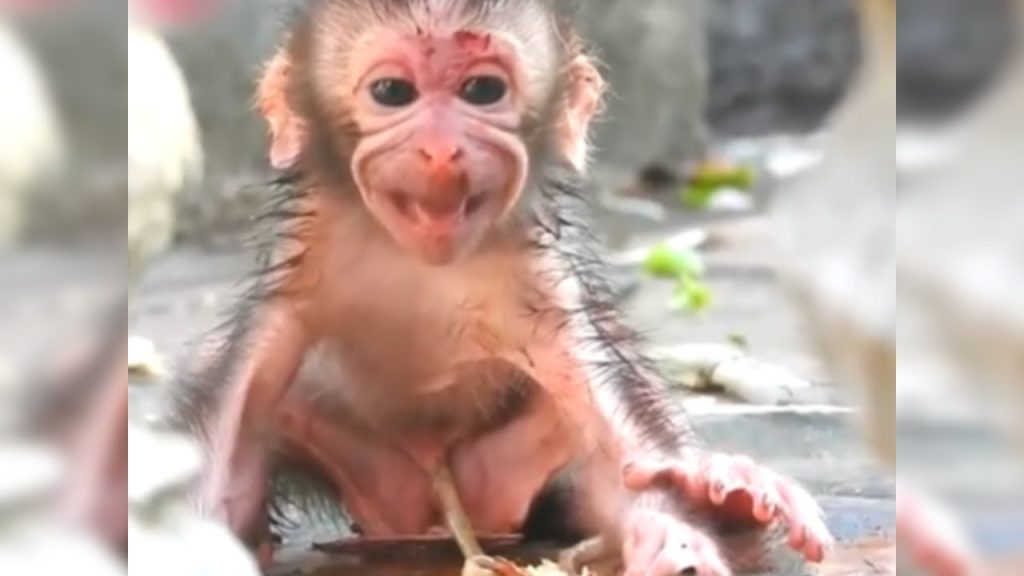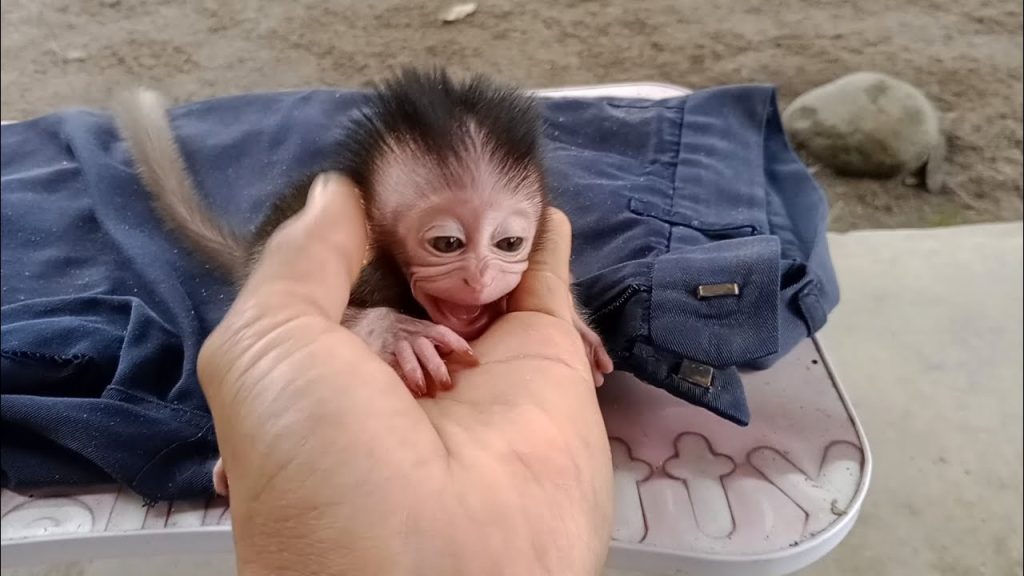
In the warmth of the late morning sun, the monkey troop was spread out peacefully—some grooming, others foraging. But one small voice cut through the calm: a baby monkey was having a full tantrum.
The tiny one, full of emotion, was baby Milo. He stomped his little feet, let out high-pitched cries, and reached repeatedly toward his mother. His eyes were wide with frustration and longing. He didn’t want food. He didn’t want to play. He just wanted his mother’s full attention.
But at that moment, his mom was busy grooming an older sibling nearby. She wasn’t ignoring him—just occupied. Still, to little Milo, it felt like the whole world had turned away. His cries grew louder, his little hands tugged at her tail, and he even rolled on the ground dramatically.
This was no misbehavior—it was an emotional cry from a baby learning how to express his needs.
After a few minutes, his mother gently turned and scooped him up. Instantly, the tantrum melted into quiet sniffles as he clung tightly to her chest. She nuzzled him, offering the comfort he’d been begging for. No words were needed—just warmth, closeness, and reassurance.
Scenes like this are common in monkey families. Young ones crave connection and feel deeply when they don’t have it. These small emotional outbursts are part of growing up, part of learning patience, and part of understanding love.


